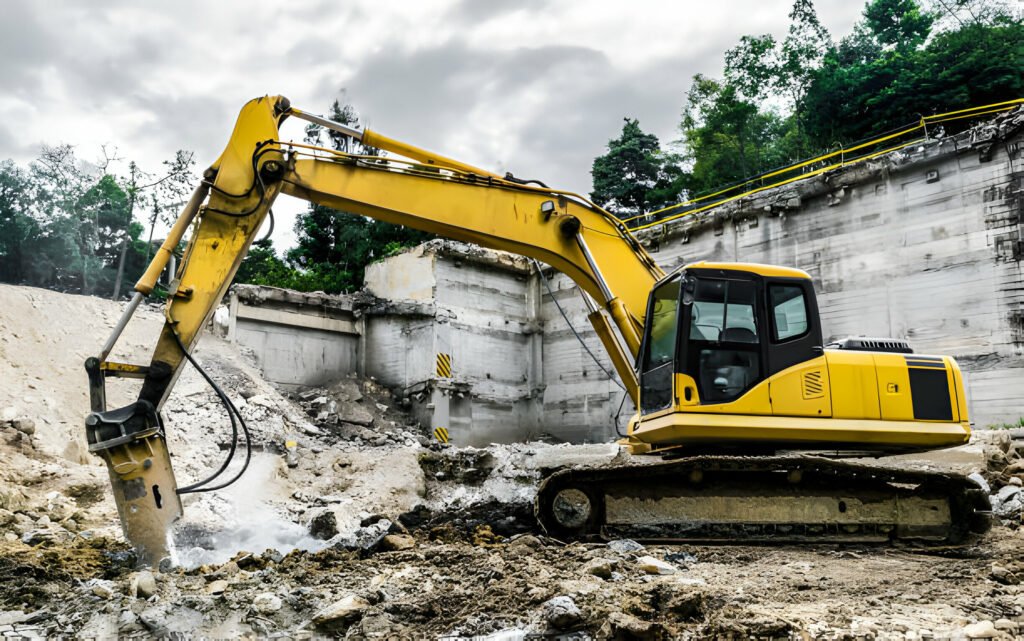Hydraulic breakers play a crucial role in the construction industry, particularly in tasks like crushing concrete. These powerful tools are essential for breaking up tough materials quickly and efficiently, saving time and labor on construction sites; and in conjunction with shredders, they offer a comprehensive solution for construction waste management.
Here is a guide on the role of hydraulic breakers in the construction industry.
Understanding Hydraulic Breakers
Hydraulic breakers are powerful percussion hammers that are attached to excavators and other heavy machinery. They operate on the principle of hydraulics, using pressurized oil to generate forceful blows. These blows are directed onto the surface to be broken, such as concrete, rocks, or asphalt, causing them to fracture and break apart.
Hydraulic breakers come in various sizes and capacities to suit different types of construction projects, from small residential tasks to large-scale industrial applications.
Applications of Hydraulic Breakers
Hydraulic breakers are used in a wide range of construction applications, from demolishing buildings to breaking up roads and sidewalks. In conjunction with shredders, they can also be used to process materials like concrete, construction and demolition (C&D) waste, green wood waste, and tires.
Shredders help reduce material size further, making it easier to transport and recycle them. This combination of hydraulic breakers and shredders offers a comprehensive solution for construction projects, improving efficiency and sustainability. By recycling materials on-site, construction companies can reduce the need for transporting waste to landfills, thus lowering carbon emissions and environmental impact.
Advantages of Hydraulic Breakers
One of the main advantages of hydraulic breakers is their efficiency. They can deliver a high level of force with each blow, allowing them to break through tough materials quickly. This can significantly reduce the time and labor required for demolition and construction tasks.
Additionally, hydraulic breakers are versatile and can be used for various applications beyond concrete crushing, such as trenching, rock excavation, and pavement removal. Their adaptability makes them a valuable asset for construction projects of all sizes.
Choosing the Right Hydraulic Breaker
When selecting a hydraulic breaker for a construction project, several factors should be considered, including the size and type of material to be broken, the operating weight of the breaker, and the hydraulic flow and pressure of the carrier machine.
It’s essential to choose a breaker that matches the specifications of the carrier machine to ensure optimal performance and safety. Additionally, maintenance and serviceability should be taken into account to ensure the longevity and reliability of the hydraulic breaker.
Maintenance and Service of Hydraulic Breakers
Proper maintenance and service of hydraulic breakers are crucial to ensure their efficient and safe operation. Regular maintenance tasks include checking for wear and tear, lubricating moving parts, and inspecting hydraulic hoses for leaks or damage. It’s also essential to follow the manufacturer’s guidelines for maintenance intervals and procedures. Maintaining the correct hydraulic fluid level and pressure is vital for optimal performance. Any signs of oil contamination should be addressed promptly to prevent damage to the breaker.

